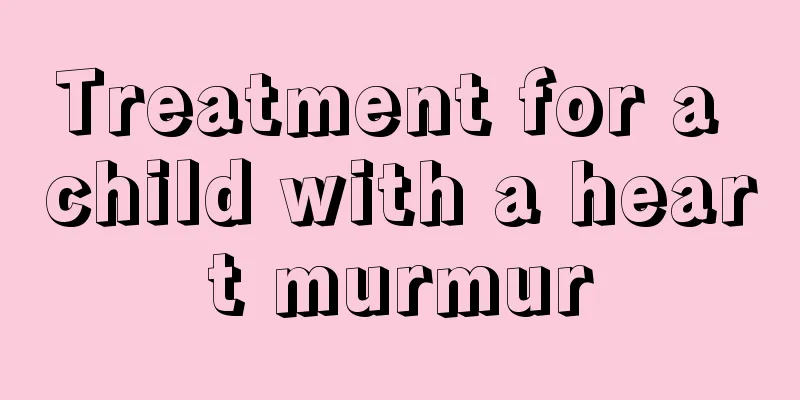What should I do if my child has frequent and urgent urination?

|
Some parents report that their children always urinate a lot, especially at night, and often have to get up several times in the middle of the night. Generally, this is because the child has frequent urination and urgency. Some people may feel very confused and wonder how a child can have this disease. In fact, neurogenic urinary frequency in children is a common disease in pediatric outpatient clinics. The only clinical manifestation is the frequent urge to urinate when the child is awake. It should be noted that it may be caused by bacterial infection, but the specific cause still needs to be known after examination. Mental stress, environmental changes Easy to become a trigger Children with neurogenic urinary frequency do not actually have any organic lesions. There are two main reasons for frequent urination: internal and external. The internal reason is that the cerebral cortex of children is not yet fully developed, and the inhibitory function of the primary urination center of the spinal cord is poor, which makes it easy to be affected by adverse external stimuli and have urination dysfunction. External factors may be some negative influences in the child’s recent life, which cause the child to be nervous or have adverse stimulation to his or her mental state. Psychological adjustment is enough Use medication with caution If you find that your child has frequent urination, you should first take him to the hospital for examination to rule out the possibility of any disease. Since neurogenic urinary frequency is a non-infectious type of urinary frequency and urgency, and urinary tract infection in children is an infectious disease and can also manifest as frequent urination and urgency, a routine urine test at the hospital can provide a clear diagnosis. Urine tests for urinary tract infections in children will be abnormal, showing turbid urine mainly composed of white blood cells. Children will generally also have other symptoms of discomfort, such as fever, crying, irritability, etc. An experienced pediatrician can usually tell the difference. Once it is confirmed to be neurogenic frequent urination, parents do not need to be too nervous. First, they should analyze the child's recent living conditions, find out the reasons that cause the child's nervousness and anxiety, explain and comfort the child carefully, so that the child has a correct understanding of the things he is afraid of and worried about, and return to his previous relaxed and happy mood as soon as possible. In this way, frequent urination will be corrected naturally. Parents should know that a normal child may urinate 6-8 times a day, while a child with neurogenic frequent urination may urinate 20-30 times a day. In addition to the increased frequency of urination when awake, the child has no other abnormalities. This requires taking the child for treatment in time so that the child can recover as soon as possible. Parents should also pay attention to comforting their children's emotions. |
<<: How should children stimulate their appetite?
>>: What should I do if my one-year-old child has a fever at night?
Recommend
What are the precautions for newborns?
When a child is just born, he faces a brand new w...
What should I do if my child always has a low-grade fever?
If a child's body's resistance system is ...
How to wean your baby off from night feeding
I believe that mothers all know the importance of...
Children's hands and feet are cold and they are afraid of cold but not fever
Children in their early childhood are very prone ...
What should I do if my two-year-old child has diarrhea?
Diarrhea is a very common problem for babies. The...
The child is sleepy and has no energy and refuses to eat
Children generally sleep longer than adults. Howe...
Why do sweaty palms occur?
I don’t know if you have ever had this experience...
What are the common sense of children's first aid?
Children are not like adults. If children have an...
What should I do if my five-month-old baby has diarrhea?
It is inevitable that babies will get sick during...
Treatment of long-term anemia in babies
If a child has a disease that keeps recurring, it...
Is the baby afraid of cold or heat?
Every baby has a different physique. Some babies ...
Symptoms of fish bones stuck in children's mouths
Many people like to eat fish, and there are many ...
Diet therapy for the prevention and treatment of cerebral palsy in children
Cerebral palsy in children is a disease caused by...
How to deal with a two-year-old baby's low-grade fever
Children's physical conditions are rather spe...
What should I do if my child doesn't want to go to school? How can I persuade him?
Many parents have encountered the problem of chil...









